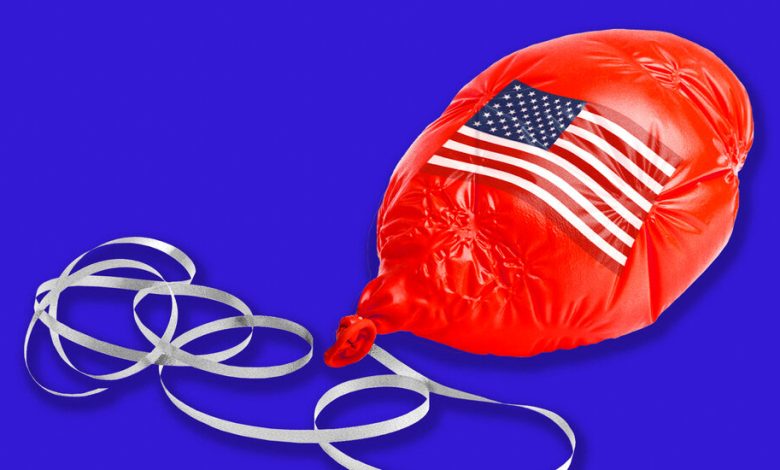Can We ‘Make America Affordable Again’? Should We?

The third item on the 2024 Republican Party platform, after promises to seal the border and engage in mass deportations, is a pledge to “END INFLATION, AND MAKE AMERICA AFFORDABLE AGAIN.”
On the first part of that pledge, I don’t know whether the platform’s drafters — who mainly seem to have copied and pasted their items from Donald Trump’s posts on Truth Social — are aware that inflation is already way down. But the second part is more interesting. What do they mean by making America affordable again? Depending on the interpretation, that’s either something that has already happened or a really bad idea.
Before I get there, a word about falling inflation. I get many comments to the effect that whatever official statistics may say, Americans don’t see inflation coming down. Such claims about public perceptions are, however, false. Surveys that ask Americans how much they expect prices to rise over the next year show a sharp fall in inflation expectations, roughly back to what they were in 2018-19. Here, for example, are the results of a survey conducted by the New York Fed:
So Americans do know that inflation — the rate at which prices are rising — is way down. What is true is that we had a burst of inflation in 2021-22, which has left the level of prices considerably higher than it was a few years ago. A dollar doesn’t buy as much as it used to. On the other hand, American workers are taking home more dollars: Recent years have seen a surge in wages as well as in prices.
So, has America become unaffordable? In normal life, when we ask ourselves whether we can afford something, we compare its price to our income. And if we use that normal-life standard, America is more affordable now than it has ever been; most workers’ wage gains over the past five years have comfortably exceeded the rise in consumer prices:
But many people get upset, even angry, if you point this out. That’s not really surprising. Recent research confirms an old observation, going back at least to the 1970s, that very few people think of inflation as a process that raises both prices and wages. Instead, most believe that they have earned whatever income gains they’ve experienced, and that inflation has snatched away those gains.